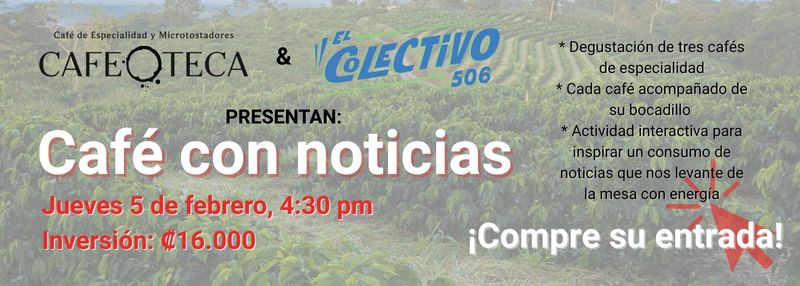Two women journalists share how the crisis in Nicaragua pushed them to seek new ways of life. This story was created through one of the Central American Reporting Grants from the Latin American Fund Solutions Journalism Fund, an initiative of El Colectivo 506. It was published by Intertextual on Nov. 6, 2024 and adapted here for co-publication on our site. (To watch the video below in English, just activate the closed captions (CC) under the video; then go to Settings and Subtitles/CC, and selection “Spanish (auto-generated) to English.”)
Iris Castillo and Nidia Elisa Monterrey have a lot in common. Both are trained journalists who have been forced into exile due to political repression and the persecution of the independent press in Nicaragua. The two have not only faced the difficult task of surviving far from their homeland, but also found innovative ways to move forward, drawing on journalism skills as they embrace entrepreneurship.
From Costa Rica, their voices remain active, some of them not only through journalism, but also in the entrepreneurial field, reflecting their resilience and the transformative power of communication.
An unprecedented crisis that hits women journalists hardest
Since 2018, under the dictatorship of Daniel Ortega and Rosario Murillo, Nicaragua has faced a devastating sociopolitical crisis. The systematic repression of independent media has included detention, banishment, confiscation, denationalization, theft of equipment, forced disappearances, and even the murder of journalist Angel Gahona on April 21, 2018. Impunity persists in the case of his murder.
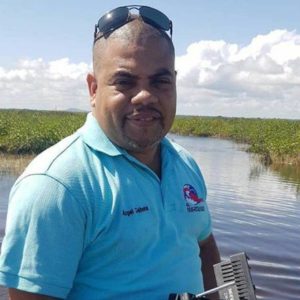
This repression has also resulted in the exile of more than 270 independent Nicaraguan journalists and communicators; prohibitions for at least 10 journalists from entering their own country; and the expulsion of international media. According to data from the Association of Independent Journalists and Communicators of Nicaragua, there are more than 80 journalists in Costa Rica alone, of whom 30 are women. The creation of laws that persecute the exercise of independent journalism and that further deepen generalized censorship have endangered press freedom. In this context, Nicaraguan journalists have been criminalized and forced to leave the country or operate clandestinely within Nicaragua.
This frontal attack against the press has left many professionals in exile, challenged to find new means of subsistence in Costa Rica. This neighboring country has opened its doors to them, but has also presented next challenges of adaptability and stability. Its high cost of living, and differences between Costa Rica’s bureaucracy compared to Nicaragua’s, have made it hardert o find adequate employment.
According to the Institute of Statistics and Census of Costa Rica (INEC), the unemployment rate in Costa Rica in 2023 was 7.8% of the general population. The disaggregated unemployment rate for men was 7.2% and for women, 8.7%, showing a decrease compared to 2022.
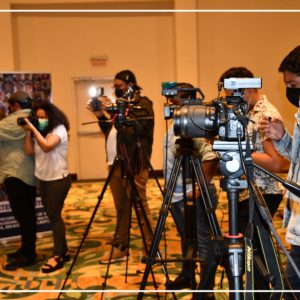
While the vocation of journalism remains latent, the economic sustainability of journalism abroad has been a challenge for everyone, forcing many to apply their skills to other fields with greater potential to provide economic stability for journalists and their families.
From challenge to rebirth: stories of resilience
Iris Castillo—From journalism to an artisan market in Costa Rica
Iris Castillo, a Nicaraguan journalist who has been in exile in Costa Rica for almost six years, clearly remembers the impact of her departure. Political and economic life in Nicaragua forced her across that border.
“You arrive in a strange country and you realize many things you’d never noticed before,” she says.
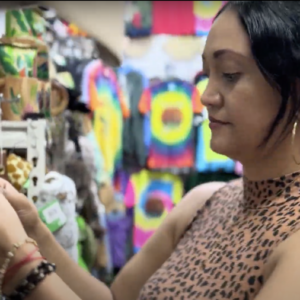
She explored options to continue her work in the media from exile with her partner through a television channel and the digital medium Darío Medios, Iris decided to start a business that would allow her to open doors for other Nicaraguans.
“The situation in Nicaragua is critical—especially for artisans who, after 2018, lost access to tourists,” she says. “They don’t sell like they used to, and that made me think: Why not help from here?”
The result was a small stall at a crafts market in Costa Rica, selling both Costa Rican and Nicaraguan products.
“I have realized that what our Nicaraguan artisans do, such as woo work, is so widely accepted internationally that it fills me with pride. With this small venture I am also helping Nicaraguan labor to be valued outside our country, since I buy directly from artisans in Nicaragua,” adds Iris.
Despite these achievements, starting a business in a foreign country has not been easy.
“Costa Rica is a very expensive country, with multiple barriers—from permits to xenophobia,” Iris says. However, her ability to communicate and his training as a journalist have allowed her to break down those walls.
“At first people saw me as a Nicaraguan who came to take jobs, but when they got to know me, they understood that I am a professional who came to work for my business and for others. Communication has been key to overcoming that barrier,” she says.
Iris has been able to apply her narrative skills in her venture, passionately describing the products she sells: “It’s not just selling. It’s explaining the story behind each product, how they are made, and the effort behind it. I learned that from journalism, and it has helped a lot here.”
Castillo, who is from the department of Rivas in southern Nicaragua, very close to the Costa Rican border, worked in journalism for more than 15 years. She says she misses being in the streets of Nicaragua, interviewing people, meeting and sharing stories.
“Journalism is my passion and I will return to it one day,” she says, “but now I have to think about my daughter, in stability. Entrepreneurship has given me the opportunity to be at least economically stable.”
Nidia Elisa Monterrey: ‘La Gigantona,’ a space of culture and flavor
Nidia Elisa Monterrey, who now owns the restaurant La Gigantona in Costa Rica, also shares a story of adaptation and overcoming.
“Going from a communicator to an entrepreneur was an enormous challenge,” she explains. “In my case, it was a necessity, because working as a journalist in Costa Rica, where the cost of living is very high, was simply not enough.”
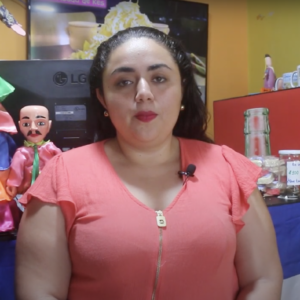
Photo: Intertextual.
Facing a foreign environment full of bureaucracy, Nidia and her partner decided they’d do whatever it took to overcome every obstacle in their path.
“Costa Rica has a lot of bureaucracy, and entrepreneurship as a migrant requires much more time and money. But we managed to get organized and, with effort, complete a year of success with La Gigantona,” she says proudly.
Nidia not only faced administrative challenges, but also the challenge of positioning her business in a competitive market.
“Nowadays, if a business isn’t on social media, it’s like it does not exist,” she says. “That was where my journalism skills helped me. Creating content, communicating the essence of the business, and being close to customers has been key for our success.”
Nidia, from Nicaragua’s southern Caribbean, went into exile with her family—some left Nicaragua in 2018, others over the years—with whom she shares her company and financial sustainability. As with Iris Castillo, Nidia Elisa has a child born in Costa Rica. She says that every day, she’s fighting to offer him better opportunities.
Nidia’s business is a space not only for gastronomy, but also to celebrate Nicaraguan culture.
“I have been able to tell the story of Nicaragua through food,” she says. “Each customer not only enjoys the dishes, but also takes away a little piece of our history. And that ability to connect with people, to communicate beyond the tangible, it’s something I learned from journalism.”
From journalism under attack, to leadership in entrepreneurship
“Nicaraguan Journalism is Journalism in Decline,” a study by the Association of Independent Journalists and Communicators of Nicaragua (PCIN) in 2022, stated that at least 60% of journalists in Nicaragua were underemployed. This worsened the crisis, making the profession even more precarious and increasing among journalists in exile, causing this group to reinvent itself or move away from journalism altogether.
Martha Sánchez, spokeswoman for the PCIN, is living testimony of the brutal repression in Nicaragua.
“We face systematic violence, imprisonment and confiscations,” she says. “The regime has criminalized our work, making it impossible to practice journalism freely.”
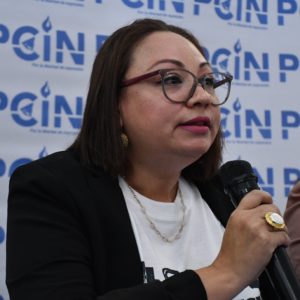
Photo: Intertextual.
Exile, for many journalists like Martha, has been an inevitable outcome. However, it has also been a platform for reinvention.
“Many of us have taken on media management in exile, and others have sought new horizons,” she says, emphasizing that journalism skills remain essential even when journalists try their hand at other fields. “We not only denounce the crisis, but we look for solutions. We have developed management capabilities that we did not imagine. Those same tools that we used to communicate, now allow us to sustain our ventures.”
The PCIN study documented the difficulties that journalists face in surviving in exile, and the fact that many were being forced to leave the profession.
“This is unfortunate, since 33% are thinking about leaving the profession,” says Martha. “Th is aggravated when we do not even have universities that are training new professionals in Nicaragua.”
Journalism that transcends borders and professions
The stories of Iris and Nidia are not only stories of exile, but also of reinvention and resilience. Despite persecution, they have found ways to continue contributing to their communities and society with their ventures: in the case of Nidia, bringing dishes from their homeland, and in the case of Iris, through crafts that remember the origins of migrants.
Through entrepreneurship, they transformed their fight for freedom into actions that help others and create jobs.
They say that their work is about denouncing wrongs, but also finding creative ways to move forward and keep your voice alive, even in exile with your endeavors. As Iris says, “we continue to be voices that do not remain silent, that look for ways to help, to change and to move forward.”
Whether directing media outlets or ventures in other fields, these three female journalists have shown that the ability to adapt, perseverance and love for their country are powerful forces that cannot be silenced.



